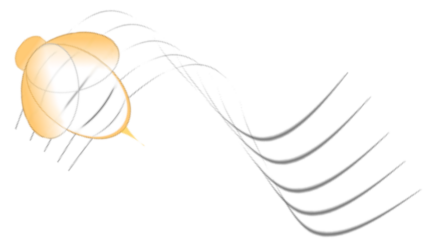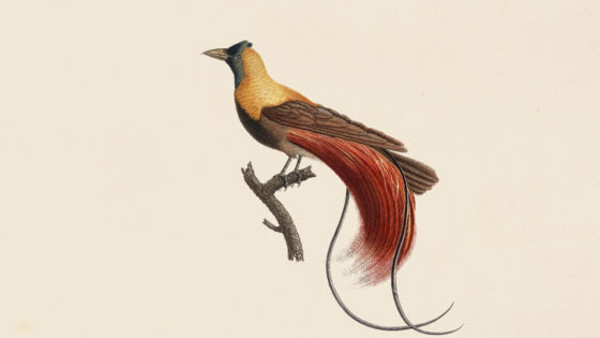One God, one Farinelli...
For a while, I have been thinking about dedicating one of the Whitsun Festivals to the art of the great castrati. It is no coincidence that I can realize the idea now, when discussions about the abuse of the bodily integrity of artists have become so topical.
Castrati had existed as a phenomenon in Europe since at least the 12th century and Alessandro Moreschi, of whom we even have recordings, sang in the Sistine Chapel until 1913. This deplorable tradition of mutilating thousands of boys for the sake of magnificent works of art with the profitable and, for many people, pleasurable side-effect of creating a means of quenching their lust, was therefore something that was carried out for centuries, but little questioned. As in many cases today, people exploited their positions of power, using the excuse of furthering helpless children’s careers. In many cases, parents had no choice than to consent, hoping that the remuneration, however small, would improve their miserable lives.
Bearing this in mind, I wondered whether we should celebrate the wonderful artistic achievements of that period and whether we should present the works at all. I think the answer is clear: absolutely. But, at the same time, the phenomenon should be highlighted from different points of view, with the problematic context put up for discussion.
We might also wonder how the lives of people such as Farinelli and Senesino would have developed had they not been given this ‘amazing chance’ to become the most admired singers of their age. Might they have wasted away as labourers on a Southern Italian field? Might they not have survived childhood due to hunger? Would they have married and led a quiet and happy life?
I will pay homage to the castrati at the 2019 Salzburg Whitsun Festival. Being a festival of music, I would also like to focus on the moment of artistic climax and, in a way, the beginning of the end of the castrato craze in classical music history. I hope to show how castrati made such a huge impact on music lovers of the day, through their music and their singing.
In the 1730s, London was one of the operatic capitals of the world and George Frideric Handel one of its protagonists. But in 1733, Handel had a huge row with his castrato star Senesino, who consequently left the Royal Academy of Music. A newly established and competing opera company, the Opera of the Nobility, was set up for him. Alongside Senesino, the composer Nicola Porpora and a new megastar, Carlo Broschi, known as ‘Farinelli’, were its greatest assets, drawing patrons away from Handel’s theatre. London was feverish and ‘One God, one Farinelli’, allegedly uttered by a swooning gentlewoman, became proverbial, even immortalized in Hogarth’s cycle A Rake’s Progress.
For the next four years, Handel’s Royal Academy and the Opera of the Nobility were engaged in a fierce battle for the favour of London’s opera fans. This produced music of the highest artistic order, but also a financial disaster that led to the end of the reign of Italian opera in London.
In the hope of recreating the dazzling impression of the former and avoiding the latter, I would like to propose some of the highlights that galvanized 18th-century audiences, as well as giving an overview of the art of the castrati.
At the centre of our four-day Festival, there will be a new production by Damiano Michieletto of Alcina, one of Handel’s most wonderful operas, with Gianluca Capuano and Les Musiciens du Prince. The cast will include me, Philippe Jaroussky and Sandrine Piau.
For the first time since 1735, audiences will be able to compare Alcina directly with its strongest competitor, Porpora’s Polifemo. First performed two and a half months earlier, with Farinelli heading the bill, the opera contains the outstandingly beautiful aria ‘Alto Giove’. In Salzburg, the stellar cast includes Max Emanuel Cencic and Julia Lezhneva.
The Whitsun Festival’s concert programme spans an arc from the Sistine Chapel Choir’s centuries-old tradition of vocal polyphony to Pergolesi’s poignant Stabat Mater, to which Arvo Pärt and Giacinto Scelsi respond as composers of our time. We will therefore examine the tradition of sacred music for high voices in different eras. And we also want to show how the use of the castrato voice changed towards the end of the 18th century, from exceptional virtuosity to a more expressive style, which was guided by the libretto.
There will be various concerts, with popular soloists highlighting the repertoire of some of the most famous castrati of Handel’s time. A rarely performed gem of sacred music with an Austrian connection can be discovered in Antonio Caldara’s beautiful La morte d’Abel featuring a libretto by Pietro Metastasio. The oratorio was written for Farinelli and first performed at the Hofburgkapelle in Vienna in 1732.
Needless to say, our programme features the film Farinelli, and we will organize a panel discussion on the ‘heavenly voices’ of the castrati, on whose vocal tradition the virtuosity of Western music rests.
The riveting climax of this weekend celebrating the art of the castrati will be a battle between prima donnas and primi uomini in a ‘Farinelli-Gala’, uniting some of the finest Baroque singers of our time. After all, there were many wonderful female singers who left their imprint on the age of the castrati too! Some of them, like Francesca Cuzzoni, were shrewd enough to make hugely successful appearances at both the Royal Academy of Music and the Opera of the Nobility, while the stakes for Italian opera in London were still high.
Cecilia Bartoli



